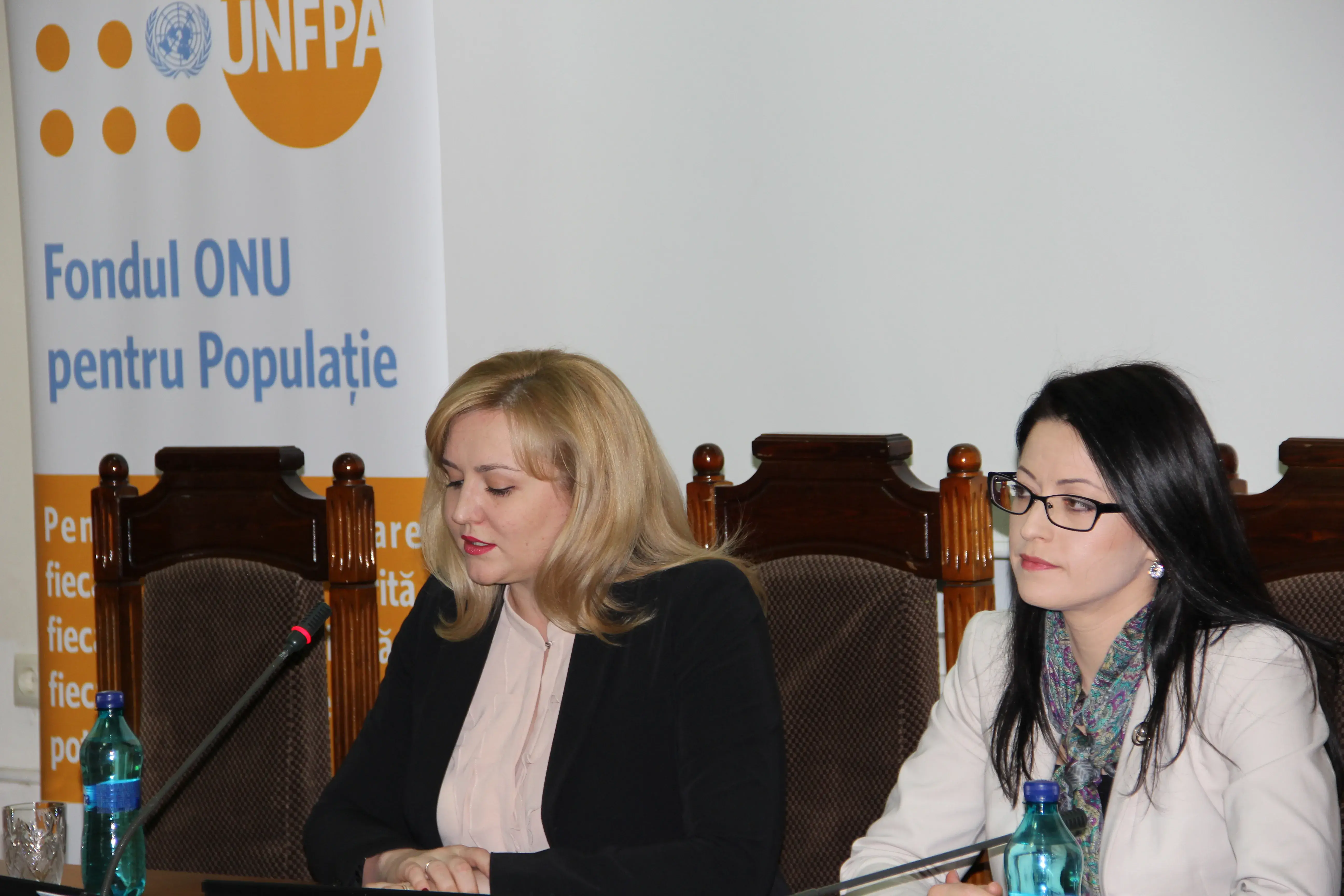Nina Cristel from Chisinau, the capital of Moldova, became a mother for the second time during a period when the whole country talks about coronavirus, restrictions, and uncertainties for the future. Nina delivered on the 39th week of pregnancy, at the Municipal Clinical Hospital No 1, in Chisinau.
“I gave birth wearing a mask and gloves. All the staff who attended the delivery wore masks and gloves”, says Nina.
She also told us that the facility was quite well prepared and that the health professionals provided safe and quality services.
It’s clean everywhere. Disinfectants are placed in the hallways. The cleaning lady washes the floor in the ward twice a day. Besides, when entering the room, the doctors have disinfectant and wear masks, safety goggles, and gloves”.
During this period, however, neither visits nor attendance at birth is allowed in the hospital.
“It’s quiet on the hallways. From time to time, only babies let us know that they want to be fed”, says the mother.
Pregnant women and their concerns during the pandemic
Nina managed to go to the doctor for the last check-up on 16 March, on the first day when all the business units in Moldova were locked down, except pharmacies, grocery stores, and gas stations.
She did not manage to procure everything she needed for the postnatal period, so she turned to online shopping. It was difficult, though, since only a few stores had available in one place everything required. In the maternity bag, she also added a bottle of disinfectant.
‘How will I give birth? Is it safe?’ was another concern of the parents-to-be. The couple was worried about the highest number of COVID-19 cases registered in Chisinau, and the associated risk of infection. In the end, after consulting trustworthy information sources, they calmed down. They decided to use the personal car to get to the hospital on the day of delivery, as an extra precaution.
One more concern, as Nina recalls, is the need to walk outside, while people around are not very open to accept that behavior. She did not experience any incidents, but she read online in various parent groups about situations when pregnant women and couples with young children were criticized for going out to the park, even though they kept the social distance.
“The best thing is to remain calm and take precautions”
To date, there is no scientific evidence about the increased susceptibility of pregnant women to COVID-19, according to the United Nations Population Fund. However, it is known that, generally speaking, pregnant women undergo physical changes that can make them more vulnerable to experiencing severe respiratory infections. They must, therefore, be treated with utmost priority.
Nina says that, indeed, the COVID outbreak raises anxiety. She noticed that fake news managed to sneak into the information stream, and they only aim at raising panic. Despite this situation, she remained calm, since this is the best thing for the baby. She also read scientific evidence about the novel coronavirus and followed the news in the country and abroad:
`” We can’t change anything, so why should we panic? The best thing to do is to apply the recommended protection measures, to get information from trustworthy sources, and to prepare for the arrival of the baby. It gets harder to filter the information, but not impossible”.
Nina and her husband Grigore have another child – a 5-year-old daughter named Gabriela. To avoid any infection, the parents gave up visiting relatives and walking in the park. The long hours they previously used to spend outside at the playground, are now limited to 1-2 hours a day in the yard:
‘Gabriela shows a lot of wisdom and patience. When we go out into the yard, she usually does cycling or scooting and looks after her newly arrived brother. At home, we organize various educational activities, where we both take part, myself and Grigore, we color, do handicrafts, read, and cook’.
The young mother says that now, after her discharge, the family continues to follow doctors’ recommendations. They avoid any contact with the outside people, do not touch their faces while being outside, frequently and correctly wash their hands with soap and water, ventilate the house, consume more greens, and fresh vegetables.
What is it like to be a pregnant woman and to deliver during a pandemic? ‘It’s complicated for me because I’m quite active, but I learn to be more patient and to spend the time differently.’
About 7,800 women from Moldova are in Nina’s shoes
About 7,800 women from all over Moldova, who are currently supervised by their family doctor and will become mothers soon, have the same concerns.
“Pregnancy and safe delivery are of significant importance to us,” says Nigina Abaszada, UNFPA Representative in Moldova. “They depend on the health system’s proper functioning and strict adherence to the recommended procedures by the health personnel.”
That is why UNFPA Moldova, in close collaboration with the World Health Organization and the Ministry of Health, Labour and Social Protection, recently supported an online training related to COVID-19 response. Over 80 healthcare professionals working in Perinatal Centers all over the country attended the event. They improved knowledge about the epidemiological situation, prevention measures, clinical management of cases among pregnant women, including severe complications caused by the disease.
UNFPA Moldova is also supporting an online dashboard with real-time data about the pandemic, which tracks, among other data, the statistics about pregnant women affected by COVID-19.
So far, 39 pregnant women were diagnosed with COVID-19 in Moldova, 27 of whom were already discharged. The others get treatment in a strategic hospital from Chisinau, where all pregnant women suspected or already diagnosed with COVID-19 are transferred. Their health status is of mild or moderate severity.



